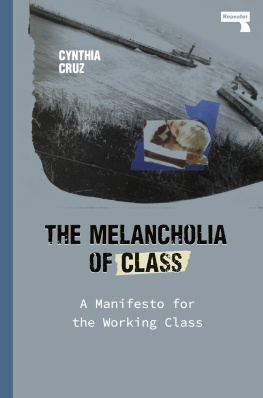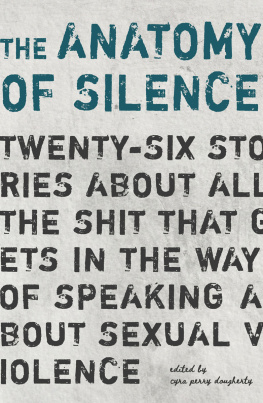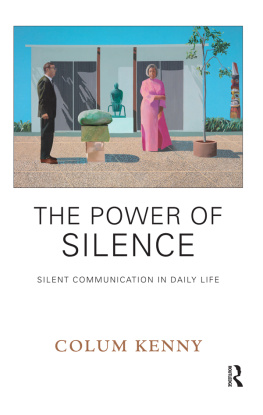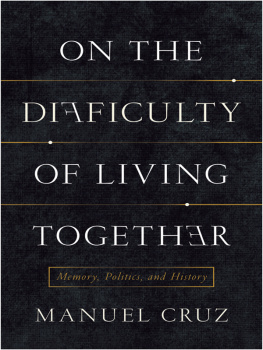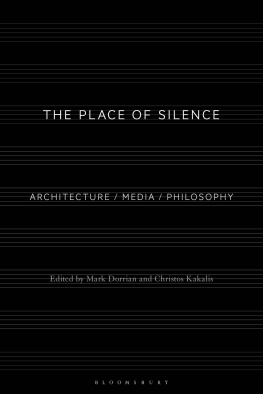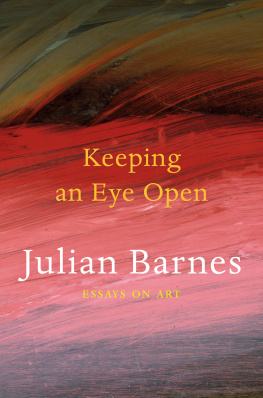Introduction
The Smallest Gesture Has a Story2
A siege. In the skies day and night were fighter jets and Black Hawk helicopters. The days were punctuated by the arrival of tanks, voices threatening through loudspeakers. As soon as the tanks arrived at the towns periphery, everyone began shutting down their shops, closing their windows, returning to their homes, and locking the doors.
In 2002, as a volunteer, I stayed in an orphanage in Tulkarem, Palestine, during the Israeli siege.
I didnt sleep much in those months.
What I recall most from that summer is the faces of the children. Their parents had been killed in the war and now these children lived with the sisters in the small building that housed the orphanage.
They were young including a little toddler who crawled along the floor. They were stunted; one pulled himself across the floor as a toddler would, although he was a child of five or six.
One boy, whose face I will never forget, didnt speak at all. He walked through the halls of the orphanage, mouth open as if in a perpetual scream, but never making a sound, his face frozen into a mask of horror. I imagined this is what his face looked like when he saw what he saw that he now could not find the words to articulate. Another child was in a constant state of anguish screaming and weeping, her body making noises but without any words.
Frozen in shock, these children were fixed in a moment that had passed them by, a moment that had left its mark not only on their psyche but also on their bodies, their faces.
H ow silence manifests in the body, in the face and the mouth, and in the work of the artist and how this silence is also, often, a form of resistance: these are my main interests here. Im also deeply compelled by the idea of failure as resistance, as a decision to not engage in the world.
The question that has haunted me for years perhaps for my entire life, or at least since I became anorexic at the age of eleven is: How does one speak when one is weighed down with the incomprehensibility of the world?
When I am in the midst of an anorectic relapse, Im unable to articulate that experience. Its only when Im outside of it, when I have space between the experience and where I am, that I can do so.
Hannah Arendt suggested that in order to see and therefore discern a situation clearly, you have to step away from it. This thinking is counterintuitive, but it makes sense in context. Say, for instance, Im at the scene of a violent act. In the moment of witnessing the act, I am not clear-headed. I need to step away in order to take what Ive witnessed and place it into my mind. Only then can I examine the incident free from the emotions that occur in the moment of shock. Time both obscures and clarifies, but it is often necessary in order to see a situation in its full complexity.
But what if the person at the centre of the violence doesnt have the luxury of stepping away? What if they arent able to achieve the time and distance necessary to examine it? What if they continue to live that violence? How then do they speak?
And what of those utterly weighed down with the world those not born into middle-class legacies, for instance, or those who suffer under the immense weight of the worlds incomprehensibility as well as their own daily experiences of incomprehensibilities (waiting for hours in a city clinic; interviewing twice a year for food-stamp eligibility; facing mounting medical bills; unable to afford basic staples such as good food, new clothes, glasses, hearing aids, bus fare). What of them? This oppressive weight added to experiences of trauma on top of trauma makes for a kind of inability to speak a speechlessness often driven into the body as illness or alternative forms of speech, such as stuttering, learning disabilities, eating disorders, drug addiction, and other forms of language that work into and through the body. Chronic trauma the recurring everyday experiences of daily incomprehensibilities and the various ways these experiences inform and mark the mind and the body: this is the germ of my question and the seed of my inquiry for this book.
M uch of my thinking about listening to others, about listening to myself when the body speaks through silence and other forms of unconventional language, has been informed by the writing and thinking of Fernand Deligny, the French social worker, educator, filmmaker, and writer. Deligny worked with autistic children at Monoblet, a settlement he founded in 1967 in the Cvennes region of France. Moving away from institutions and their systemic rules and calcified definitions, Deligny created a space for children labelled autistic to live and thrive. At Monoblet, rather than attempting to heal or change the children, Deligny worked to create a place that allowed for their ways of being, their ways of knowing and moving through time and space.
Deligny did what no one else would do: he turned toward the children and listened to them. Not to translate their experiences for them so others could better understand the children; not to teach them how to behave as if they were not autistic; and not to teach them how to translate their experiences into a language the world would understand. Deligny didnt aim to cure or change the children in his care but to learn from and with them. What is most profound about Delignys position is his surrender of power he let go of the belief that he somehow knew better than the children. I would argue that the main reason Deligny created Monoblet was simply to provide a place where these children could exist without always being talked at and taught to a place where they could simply be. Deligny provided a refuge in each of the words senses: a shelter or protection from danger or distress, a hiding place, a place to flee back to.
Though Deligny does not suggest that autistic children are resisting or dissenting, his work suggests that dissent might take place in the act of withdrawing from the world and creating spaces in which people can move in whatever ways they can or they desire. And it suggests the possibility of turning away from the hives of power and listening, instead toward those who have something else to say however they wish to say it.


